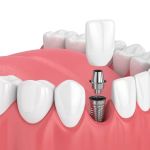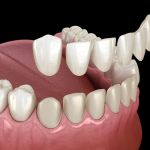The Connection Between Oral Diseases and Heart Disease: How Your Oral Health Affects Your Heart
- 1. Understanding the Link Between Oral and Heart Health
- 2. The Role of Oral Diseases in Heart Disease
- 3. Risk Factors That Contribute to Both Oral Diseases and Heart Disease
- 4. Preventing Oral Diseases to Protect Your Heart
- 5. Real-Life Case Study: The Impact of Oral Health on Heart Health
1. Understanding the Link Between Oral and Heart Health
Oral health and heart health are more connected than you might think. Research has shown that poor oral hygiene, which can lead to oral diseases such as gum disease (periodontitis), is linked to an increased risk of heart disease. While the exact mechanism behind this connection is still being explored, experts believe that the bacteria from gum infections can travel through the bloodstream, leading to inflammation and narrowing of the arteries, which may ultimately contribute to heart problems.
2. The Role of Oral Diseases in Heart Disease
Oral diseases, particularly gum disease, have been identified as a significant risk factor for developing heart disease. Here's how it happens:
- Bacteria Spread to the Bloodstream: The bacteria responsible for gum infections can enter the bloodstream through small cuts or sores in the gums, leading to systemic inflammation. This inflammation can affect the cardiovascular system.
- Inflammation in the Arteries: The bacteria and the body's response to them can lead to the buildup of plaque in the arteries, a condition known as atherosclerosis. Over time, this plaque can narrow the arteries, restricting blood flow and increasing the risk of heart attack and stroke.
Thus, an untreated oral disease not only affects your teeth and gums but can have significant effects on your heart health as well.
3. Risk Factors That Contribute to Both Oral Diseases and Heart Disease
Several risk factors contribute to both oral diseases and heart disease, making the connection even more critical. These include:
- Smoking: Smoking is one of the most significant risk factors for both periodontal disease and cardiovascular disease. It weakens the immune system, making it harder for the body to fight off gum infections, and it also promotes the buildup of plaque in the arteries.
- Diabetes: People with diabetes are more prone to gum disease due to high blood sugar levels, which can impair the body's ability to fight infections. Additionally, diabetes is a known risk factor for heart disease.
- Poor Diet: A diet high in sugar and low in essential nutrients contributes to both gum disease and the risk of heart disease. A lack of healthy food can impair immune function and increase inflammation in both the gums and the cardiovascular system.
Being aware of these risk factors and managing them effectively can significantly reduce the likelihood of developing both oral and heart diseases.
4. Preventing Oral Diseases to Protect Your Heart
Preventing oral diseases can help protect your heart. Here are some effective steps to reduce the risk of gum disease and heart disease:
- Brush and Floss Regularly: Good oral hygiene is essential. Brushing your teeth twice a day with fluoride toothpaste and flossing daily can help prevent plaque buildup and gum infections.
- Regular Dental Checkups: Visit your dentist regularly for cleanings and checkups. Dentists can detect early signs of gum disease and treat them before they cause more significant issues.
- Quit Smoking: Quitting smoking is one of the best things you can do for both your oral and heart health. Smoking cessation will improve gum health and reduce the risk of cardiovascular diseases.
- Maintain a Healthy Diet: Eating a diet rich in fruits, vegetables, and whole grains can promote healthy gums and a healthy heart. Avoid sugary foods and drinks that can promote plaque buildup and gum disease.
By adopting these habits, you can reduce the risk of both oral and heart diseases, leading to better overall health.
5. Real-Life Case Study: The Impact of Oral Health on Heart Health
Sarah, a 42-year-old woman, had been struggling with gum disease for several years. Despite regular visits to her dentist, she did not take proper care of her oral hygiene at home. After noticing increasing heart problems, she decided to visit her cardiologist. Her cardiologist discovered a link between her gum disease and her cardiovascular issues, as her untreated gum infection had contributed to an elevated risk of heart disease. With proper treatment for her gum disease, combined with changes to her diet and lifestyle, Sarah successfully managed both her oral and heart health.
This case study highlights the importance of taking care of your oral health to prevent more severe systemic health problems, such as heart disease.







 Nevada Dentistry & Braces4.0 (573 review)
Nevada Dentistry & Braces4.0 (573 review) Pediatric Dental Associates of Randolph4.0 (1772 review)
Pediatric Dental Associates of Randolph4.0 (1772 review) Tacoma Dental Care, Dr. Thi Truong Nguyen, DMD.5.0 (29 review)
Tacoma Dental Care, Dr. Thi Truong Nguyen, DMD.5.0 (29 review) Tranquility Dental Wellness4.0 (500 review)
Tranquility Dental Wellness4.0 (500 review) Amerident Dental PC4.0 (169 review)
Amerident Dental PC4.0 (169 review) Maddison Ave Dental4.0 (83 review)
Maddison Ave Dental4.0 (83 review) The Importance of Oral Health Education During Pregnancy for a Healthy Pregnancy
The Importance of Oral Health Education During Pregnancy for a Healthy Pregnancy Best Tips for Brushing Your Teeth Properly for Healthy Gums: Essential Techniques for Oral Health
Best Tips for Brushing Your Teeth Properly for Healthy Gums: Essential Techniques for Oral Health Why Skipping Dental Checkups Can Lead to Bigger Oral Health Problems
Why Skipping Dental Checkups Can Lead to Bigger Oral Health Problems Advantages of Porcelain Dental Restorations
Advantages of Porcelain Dental Restorations How Can Diabetes Cause Tooth and Gum Problems? Preventing and Managing Oral Health Issues
How Can Diabetes Cause Tooth and Gum Problems? Preventing and Managing Oral Health Issues Healthy Habits for Promoting Good Oral Health and Hygiene: Tips for a Healthy Smile
Healthy Habits for Promoting Good Oral Health and Hygiene: Tips for a Healthy Smile